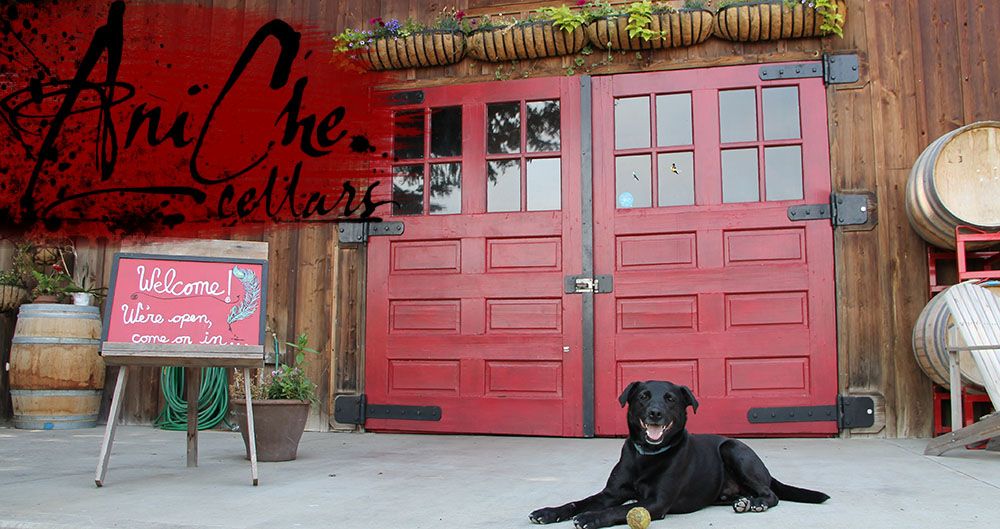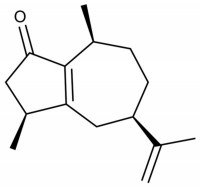
“I like a fruity wine with lots of spice, like black pepper and dried herbs. Got anything like that?” I overheard a man say in the Hood River tasting room on Thursday. Sara and Kristine steered him to a few of our wines, but I could almost list all of them. Truth is, these are the primary aromas and flavors we aim to showcase in our wines. But this is no easy feat.
Fruitiness, black pepper and dried herbs are all desired compounds in wine, and all are achieved in a subtle dance between the vineyard and vinification. The damascene group of compounds is responsible for fruitiness and some floral aromas like violets and rosemary as well as tobacco. The black and red fruit desired in many wines is related to a complex array of damascene compounds present in grape skins. However, these fruity compounds need to be coaxed and cultivated in the vineyard. A vineyard with low nitrogen in the soil can produce fruit with low damascene levels and thus, not very inviting fruit. But high levels of damascene in the vineyard does not translate to high levels of fruitiness in wines alone. The fermenting wines need high levels of nitrogen for the damascenes to be expressed in wines as well.

Black pepper aromas and finishing flavors are some of my favorites. I love spicy wines! Surprisingly cultivating these compounds in wines are not terribly difficult, but they do require an understanding of how the fruit needs to ripen on the vine. Rotundone is the chemical compound associated with black pepper in wines and it is expressed in the compaction zone of fruit. Deep in a cluster the grapes may increasingly touch one another and create a tight space where no light can reach. Counter intuitive to what most growers and winemakers desire, it is difficult to convince a grower to let berry size increase enough to have grapes form a compaction zone. Almost all of the desirable aspects of grapes are affiliated with sun exposure, water deprivation and small berry size. But if you want a little pepper? You have to let the berries touch. More counter intuitive is that rotundone is not easily detectable in wines until after several days in ferment. Some yeast strains are known to cajole more rotundone out of wines than others, but I find fermentation temperature to be the most inductive. Longer cooler fermentations seem to finesse the pepper out of skins and give us some spicy wines.
Dried and fresh herbs, such as sage, thyme, marjoram, basil and mint are essential in our wines. I’m not entirely sure which compounds contribute to these aromas, but it is certain that the chemical compound thymol plays a dominant role. Thymol can be confused with under ripe characteristics called pyrazines for the novice, but their greenness is far more pleasant and savory. These compounds contribute to wine complexity, food pairing capacity and overall interest. Thymol is the same chemical compound found in plants that we use to season foods, thus the aromas are similar because the chemistry is similar. These herbaceous compounds are found in grape skins, and are not difficult to extract in wines, so long as the fermentations are not too hot and the skins can break down slowly.
Some novices will ask a question in the winery that illicit eye-rolls and derision in tasting rooms, but it is innocent and noteworthy; “Do you put raspberries and black pepper in your wines to get those flavors?” (Fill in the blank for tasting notes). Aside from not wanting to offend the wine-curious, I tell them that it is an excellent question. Plant chemistry is such a fascinating world, I tell them, and many of the same plant chemistry is shared in the plants we consume. Thus, although we only use grapes to make our wines, the similar aromas and flavors found in other fruits, herbs and spices are often the same chemical compounds. Grapes just happen to host hundreds if not thousands of known plant compounds that make it so delicious!
Follow to read more and Geek Out on Wine with Rachael at AniChe Cellars.
Interesting post about the delicate ways of making wine.
Downvoting a post can decrease pending rewards and make it less visible. Common reasons:
Submit
Hi! I am a robot. I just upvoted you! I found similar content that readers might be interested in:
http://anichecellars.com/wp/2016/12/04/geek-out-with-rachael-demascene-rotundone-thymol/
Downvoting a post can decrease pending rewards and make it less visible. Common reasons:
Submit
i have had a good week for wine as well,i bought a filter kettle last week and inside was a 50.00 off voucher for virgin wines ,it comes in a case of 12 bottles so i ordered the mix,6 red 6 white so i just paid 57.00 on a crate that would have normally been 117.00 next day delivery.the day after i got a phone call about some coffee mugs that i had got for free for doing a survey ,he said he would deliver them and bring some wine for me to taste,i tried a few it was organic wine, delicious it was, but expensive, cost for 6 bottles 129.00 but well worth it ,he says it lasts for 2 weeks after it has been opened unlike other wines ,that will arrive on the 9th june as i told him that is when i will pay.
Downvoting a post can decrease pending rewards and make it less visible. Common reasons:
Submit